Champions of open educational resources honored with annual awards
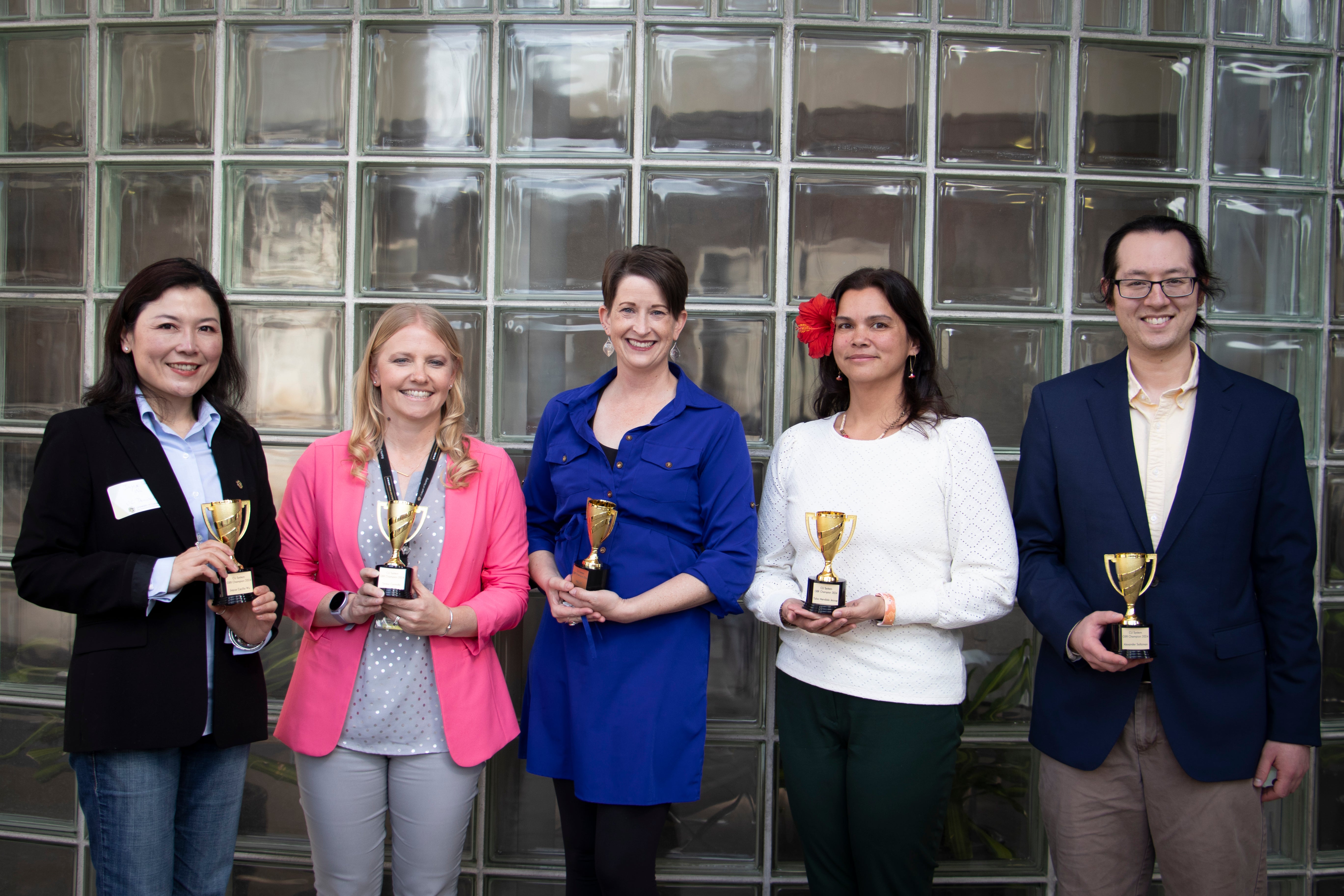
The Office of Academic Affairs and the Open CU Committee on Tuesday recognized exceptional individuals dedicated to open educational resources (OER) with the OER Champion Awards. Each honoree received a $650 award and was recognized by President Todd Saliman at the awards presentation hosted by the Office of Academic Affairs at 1800 Grant St.
The event also featured the announcement of a record amount of funding through the Colorado OER Grant Program, promising the continued adoption and creation of OER to benefit University of Colorado students at the four campuses.
CU faculty received four grants through the Colorado OER Grant Program in three funding categories for a total of $244,070 – nearly a quarter of the $1 million available for the annual award. State funding amounts since 2018 have resulted in an estimated fourfold return in cost savings for CU students in learning materials (open textbooks, courses, syllabi, lectures, assignments, quizzes, lab activities, games and simulations).
CU OER Champions 2024
Niki Juhl and Tisha Mendiola Jessop
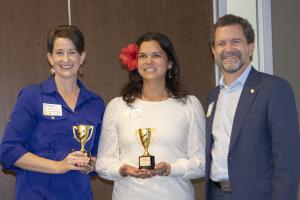
Niki Juhl, associate teaching professor, and Tisha Mendiola Jessop, teaching professor, of the Department of Chemistry and Biochemistry at UCCS, partnered on the creation of an undergraduate chemistry lab manual. The manual incorporates real-time edits, relevant media and current events and gives students access to current academic research. The manual has been well-received by students across five labs. Said one student, “The labs are easy to understand and give a real-life application that supports the material being taught. I really like that they don’t cost money.”
Alexander Saltzman
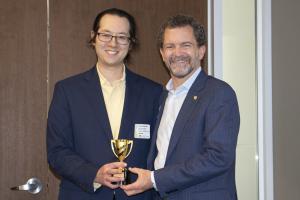
Alexander Saltzman, assistant teaching professor in the Student Academic Success Center at CU Boulder, created adaptations, ancillary materials and a learning management system Canvas cartridge file, all supporting students in general chemistry textbooks in various high-enrollment courses. A hallmark of Salzman’s approach to creating OER is considering accessibility and ease of use early on in the process. All videos are closed-captioned, and he provides instructions so educators may easily integrate the materials into their own courses. Sharing the content in the common cartridge format means that educators using learning management systems may quickly structure their own adaptations. Saltzman advocates on behalf of students and students’ rights and encourages educators to take action in response to the financial burdens and barriers of higher education, including participating in the CU Boulder Open CU Course OER Adaptation and Creation Initiative.
Teresa Connolly
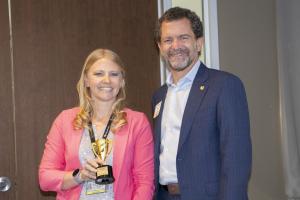
Teresa Connolly, assistant professor in the College of Nursing at the CU Anschutz Medical Campus, was honored for the creation of nursing OER materials and an open site for nursing OER ancillary materials to which nursing faculty can submit their OER. A fierce advocate of OER campuswide, Connolly is also a 2024 recipient of CDHE funding for a collaborative grant with the pre-nursing track at Fort Lewis College to create a bachelor of science in nursing degree with zero textbook cost. Awarded the highest annual amount of $100,000, this shared undertaking will increase accessibility and decrease the burden of textbook costs for students. Connolly said the collaboration will expand the nursing workforce and also provide innovative solutions to nursing shortages in rural areas, health inequities in diverse communities, and the nursing profession’s need for diversification.
Jiayue Cecilia Wu
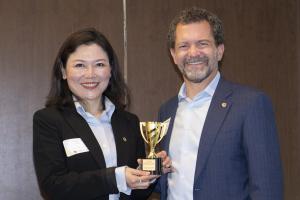
Jiayue Cecilia Wu, assistant professor in the College of Arts & Media at CU Denver, was recognized for creating course materials for the courses Digital Music Techniques and Music, Meditation and Tech. The OER materials enhance the courses’ effectiveness by providing students with high-quality, cost-free learning materials tailored to the subject matter. The projected cost savings is $10,000 per student in synthesizer sound design. An active participant in the campus OER community and advocate for its growth among faculty, Wu also runs a student advisory group for her own project, engaging them in what is called inclusive pedagogy. “The initiative aims to eliminate costs for students, making cutting-edge audio engineering studio technologies universally accessible and reducing financial burdens on marginalized students at CU Denver and beyond,” Wu said. She was also awarded a $5,000 individual grant this year from the Colorado Department of Higher Education (CDHE) for this project.
Other state grant recipients
Maureen Stabio
Maureen Stabio, associate professor in modern human anatomy at CU Anschutz, was awarded a CDHE collaborative grant of $65,400. Stabio will work with various higher education institutions and high schools to utilize the resources in specific courses. The project goal is to create an online open educational repository of human anatomy 3D models and resources. The Colorado OER Anatomy Hub will be hosted on the CU Anschutz Strauss Health Sciences Library server and linked to the Modern Human Anatomy (MHA) Program website. “Our target demographic includes high schools and undergraduate institutions which may not have access to donors or expensive, anatomically correct teaching models,” Stabio said. “This is a completely unique OER which has not been undertaken by another institution in Colorado.”
Mathematical and Statistical Sciences
Funded by the state since 2022, the Department of Mathematical and Statistical Sciences at CU Denver has maintained momentum for adopting, adapting and developing high-quality OER and zero textbook cost (ZTC, or Z degree) content. This third year of CDHE funding at $68,670 is dedicated to creating Z-degree pathways within the mathematics BS, mathematics minor, and data science certificate. These changes benefit not only math majors and minors, but hundreds of students across many departments and majors who take math courses as part of their degree requirements. This also has the potential to benefit many high school students concurrently enrolled in our courses through CU Succeed. The learning materials created utilize virtual laboratory settings to enable an active computational learning environment.
The Colorado OER Grant Program is state funded through 2027. Learn more here.
For more information on getting involved in OER, see the AIP Open CU website.

